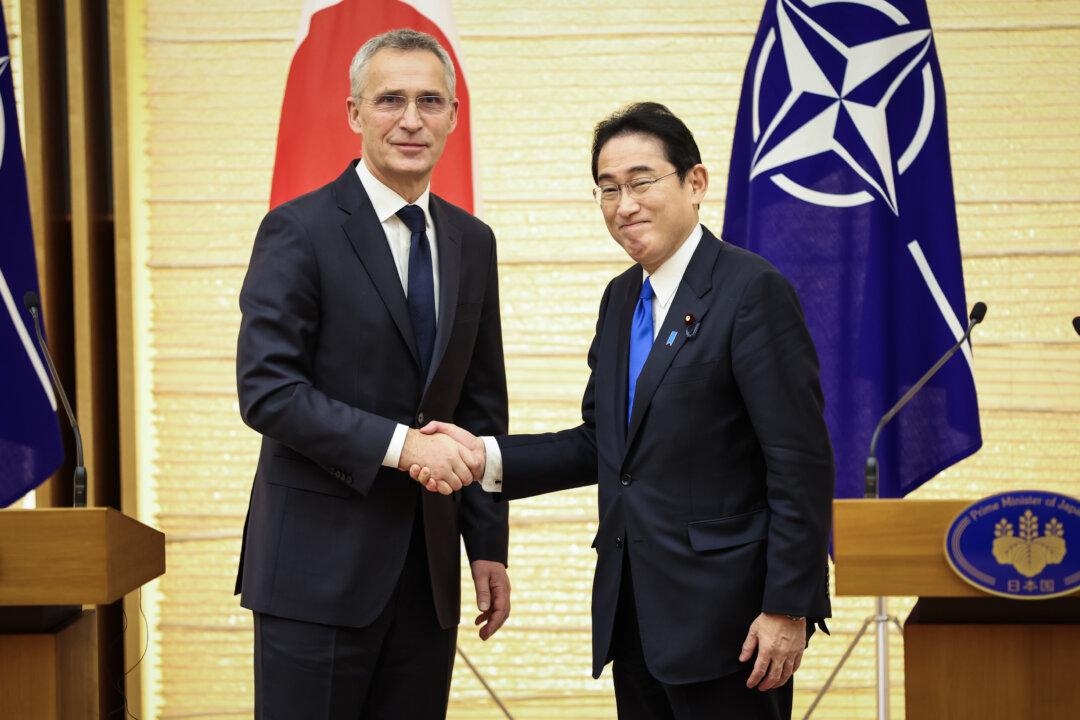NATO Secretary-General Jens Stoltenberg is condemning China’s communist regime for “bullying its neighbors and threatening Taiwan.”
During a visit to Tokyo on Jan. 31, Stoltenberg said that it’s a “critical moment for NATO and for Japan,” and warned that China and Russia are “leading an authoritarian pushback against international rules-based order.”




